MercoPress. South Atlantic News Agency
Tag: Ocean warming
-
Tuesday, October 20th 2020 - 09:38 UTC
CCAMLR: 287 women scientists call for a Marine Protected Area in western Antarctic Peninsula

Climate change and human activity are harming Antarctica and threatening wildlife from humpback whales to microscopic algae, more than 280 scientists and conservation experts say in urging protections for the icy region.
-
Tuesday, January 14th 2020 - 09:51 UTC
Last year, the warmest on record for the world's oceans long term trend
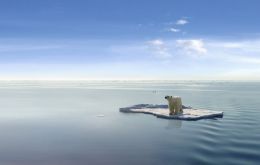
Last year was the warmest year on record for the world's oceans, part of a long-term warming trend, according to a study released on Monday. “If you look at the ocean heat content, 2019 is by far the hottest, 2018 is second, 2017 is third, 2015 is fourth, and then 2016 is fifth,” said Kevin E. Trenberth, a senior scientist at the National Center for Atmospheric Research, NCAR, and an author on the study.
-
Tuesday, July 2nd 2019 - 09:55 UTC
Loss of Antarctica's sea ice cover, particularly since 2014, baffles scientists
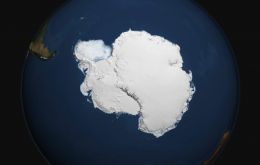
After mysteriously expanding for decades, Antarctica's sea ice cover melted by an area four times greater than France in just a few years and now stands at a record low, according to a study published on Monday.
-
Wednesday, January 16th 2019 - 09:10 UTC
HMS Protector and RRS Shackleton support 100 scientists researching Antarctica glacier

Royal Navy survey ship HMS Protector smashed through nearly 300 miles of Antarctic ice to help scientists begin a five-year mission to understand how West Antarctica is contributing to global sea-level rise.
-
Friday, January 11th 2019 - 12:39 UTC
World oceans warming up more rapidly, caution US and Chinese scientists
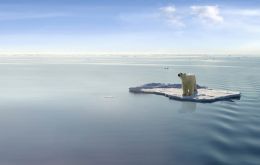
The world's oceans are heating up at an accelerating pace as global warming threatens a diverse range of marine life and a major food supply for the planet, researchers said on Thursday. The findings in the US journal Science, led by the Chinese Academy of Sciences, debunk previous reports that suggested a so-called pause in global warming in recent years.
-
Thursday, January 3rd 2019 - 08:39 UTC
Bluefin tuna back in UK waters: long term ocean current warming
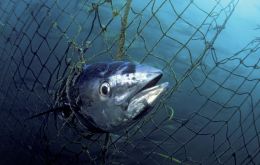
Growing numbers of bluefin tuna are being seen in the waters around the UK because of the warming impact of a long-term ocean current say researchers. These large, speedy fish are a globally endangered species and almost disappeared from the UK around 40 years ago.
-
Thursday, November 1st 2018 - 08:36 UTC
Ocean temperatures have been warming faster than estimated, shows latest scientific report
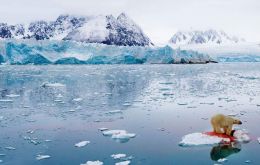
The world’s oceans may be heating up faster than previously thought — meaning the planet could have even less time to avoid catastrophic global warming than predicted just weeks ago by the United Nation’s Intergovernmental Panel on Climate Change.
